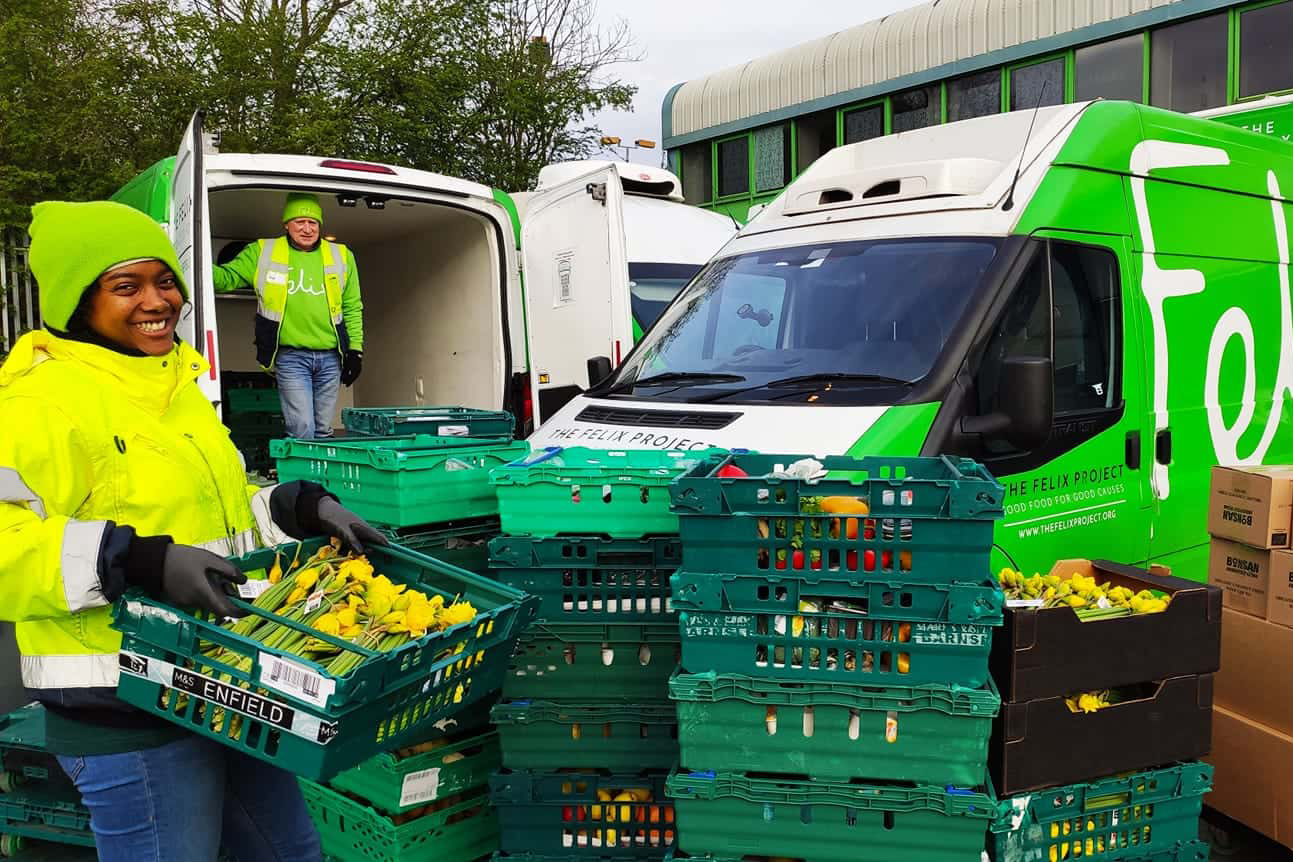
COVID19 was a game-changer for our organisation. Like so many, at first, we were hit by major concerns about unknown impacts including our revenue or funding, staff and volunteer workforce health and our ability to continue to operate when so much was changing, so fast. But we rapidly mobilised, rallied and initiated a response that went far beyond the expectations.
Within days we completely adapted our entire organisation, and over the weeks and months that followed, we achieved some truly incredible things. Ultimately, we grew our organisation by 4 or 5 times in terms of output, going from an average of 48 metric tonnes of surplus food rescued from right across the commercial food industry and redistributed to 100s of charities, schools and community organisations who in turn were able to help feed 100,000s of people at risk of hunger and malnutrition across London. By the peak in July, we were coasting along at over 200 tonnes per week which is equivalent to 100,000 meals.
One of our achievements was how our volunteer workforce responded, stepped up and provided us with a critical capability. Volunteering is at the heart of what we do. We could not exist without the commitment and dedication of a huge range of people who give their time and energy to keeping our wheels turning.
The lockdown presented many challenges for us concerning volunteers. The uncertainty over how things would impact health, as well as ensuring that we could communicate effectively and meaningfully with a very disparate and diverse group of people. We had to ensure we could keep them informed of changes and developments taking place daily as we adapted and responded to a fast-changing operating environment. We provided reassurance and peace of mind about the health and safety aspects, particularly given a huge swathe of our volunteer workforce was over 60, meaning many were forced to shield or carried the burden of being concerned about their own or their friends’ and loved ones’ health. We relied heavily on volunteers to be adaptable, responsive and undertake the unknown. We had to make big tasks like drive a van on your own because of social distancing or in many cases, ask them not to come in and be physically present. We were able to do this thanks to our mindfulness and approach to what we call the volunteer journey, something that just four or five months earlier we had explored with the help of Morgan Stanley as part of the Pilotlight Insight programme.
The programme saw a team of six from across Morgan Stanley undertake an in-depth dive analysis of how we recruited, onboarded, inducted, deployed and developed our huge volunteer workforce. Amongst many key recommendations was the importance of nuanced approaches to meaningful two-way communication between the management, staff and the volunteer workforce. As a result of our response to the project recommendations, we had already started to adopt more varied, diverse approaches to recruitment. This, combined with the fact that 1000s of people were finding themselves furloughed or with more time on their hands and a desire to help, meant that we successfully recruited 900 new volunteers in the first month. We had to pause recruitment to manage expectations!
We adopted new ways of communication with our much bigger workforce, many of who were not able to onboard in the traditional way because of COVID. We changed our messaging to ensure everyone was more regularly informed of decision making, policy and procedures changes and updates to health and safety. We informed everyone of what else was taking place across the charity, how COVID was impacting the teams and what considerations and changes we were making. We used more video content, more emails and ensured that staff were engaging much more with individuals. We had staff and volunteers call around to those not on-site to check on the welfare and ensure they felt engaged. And most important of all for me we said Thank You and tried to make sure everyone was recognised and valued. The feedback was fantastic; the volunteer workforce felt engaged and appreciated.
We are incredibly grateful to the Morgan Stanley team that took part in Pilotlight Insight. The work they undertook helped us to adopt some fantastic good practice principles and approaches that paid off for us when the crisis hit us. As a result, our most valuable assets – our wonderful volunteers were at the forefront of our minds, playing a critical role in helping us to achieve the most amazing things, helping the most vulnerable communities in the darkest hour of need.
Instead of training courses, let employees learn by doing good in the community.

Related Charities
The Felix Project
The Felix Project is a London-based charity that collects and rescues fresh, nutritious food that cannot be sold and delivers it to other local cha